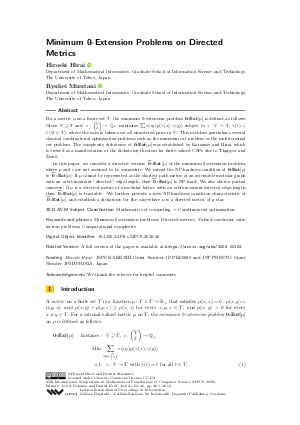LIPIcs.MFCS.2020.46.pdf
- Filesize: 0.63 MB
- 13 pages

 Creative Commons Attribution 3.0 Unported license
Creative Commons Attribution 3.0 Unported license







Feedback for Dagstuhl Publishing